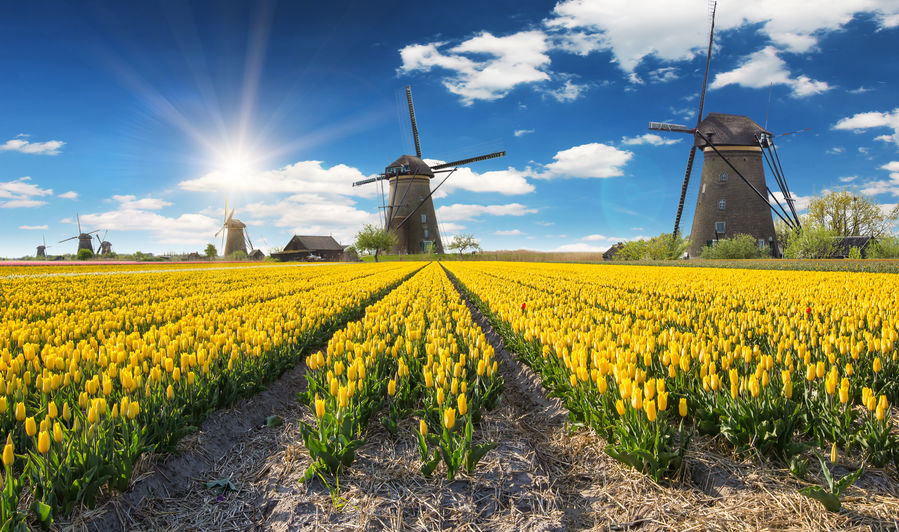Six months after Geert Wilders won the Dutch election, he has finally negotiated an agreement with a few minor parties to form government, and the unthinkable has happened. The centre-of-the-road conservatives (referred to as “far-right extremists”) got elected to unwind the worst excesses of the totalitarian left. Henceforth, the forced farm reclamations will stop, mandated heat pumps are out, electric car subsidies are going, and, in a brave scientific move, no one will be culling livestock to change the weather. The Netherlands won’t have to pursue stronger environmental policies than the rest of the EU, so their leaders can show off at cocktail parties and get jobs with the UN. The Netherlands will still be tied to crazy EU rules, but those elections are coming next month. And official government ministers are so much harder to ignore in EU negotiations. The landscape has changed.
The Telegraph in the UK gets the message: The Tories should go to war on Net Zero. This applies everywhere else, too. Tony Abbott didn’t win a 90-seat landslide victory in Australia by trying to do half a carbon tax. He won because he said he would Axe the Tax. (And Stop the Boats.)
The political candidate who goes to war on Stupid Plans has the freedom to point out all the stupidity. The weaker man with a halfway plan is still agreeing with the witchcraft; he’s just suggesting a different spell. No wonder it doesn’t sell.
To arrange the deal, Wilders gave up the Prime Ministership (a win, no doubt, for the name-calling mud slingers), but he appears to be the one in charge nonetheless. We hope he gets his day…
h/t to NetZeroWatch
Dutch farmers force heat pumps about-turn
The Telegraph
The Netherlands will tear up rules forcing homeowners to buy heat pumps as part of a war on net zero by Geert Wilders and the Dutch farmers’ party.
Six months after his shock election victory, Mr Wilders this week struck an agreement to usher in a Right-wing coalition government of four parties. “We are writing history,” he said as he announced the programme for the new government.
The new coalition marks the first time that a party focused on the interests of the agricultural sector has got into power in the Netherlands. Earlier this year, mass farmers’ protests swept Europe.
The coalition pact includes pledges to reverse green policies introduced under the previous government to hit EU climate targets, including compulsory buyouts of polluting farms. It also plans to end subsidies for electric cars in 2025 and rejects an EU demand that the Dutch reduce livestock numbers to cut pollution.
The Tories should go to war on net zero excess
Editorial, The Telegraph
But now, even Western countries are starting to turn against the worst excesses of the green movement. The new Dutch coalition has released its programme for government, and at the heart of it are a swathe of pro-consumer, pro-energy security policies, reversing some of the bizarre environmental schemes introduced by its predecessors.
Among them was a programme to compulsorily purchase farms to meet EU climate targets. The result was a farmers’ revolt and a new insurgent political party. The coalition agreement tears up rules forcing homeowners to buy heat pumps and scraps an obligation that the Netherlands should pursue a “more ambitious environment policy” than the rest of Europe.
Young voters are shifting right and breaking “taboos.”
Geert Wilders’ party did better among 18 – 35-year-olds than among some older groups. If all ages matched the younger vote, his party would have won four more seats.
At Politico, writers are worried that trends like this, which are also seen in Portugal and France, mean the “taboos against voting for populist anti-immigration parties are fading.” This begs the question of who decided that was taboo in the first place.
Their biggest fear is that even young voters are breaking out of their educational pens. They paint this as a devious “far right” opportunity instead of what it really is: the young rebelling against a lifetime of propaganda. The old jargon and name-calling formula to bully the workers into submission isn’t working anymore.
Geert Wilder turned all corners of Dutch Society into far right voters.
By Hanne Cokelaere and Eva Hartog, Politico
Across Europe, far-right parties are advancing with support from young — and first-time — voters. Despite being one of the EU’s wealthiest countries, the Netherlands’ shortage of affordable housing has become a key concern. Amid rising prices, many have an increasingly cynical outlook on life. Unlike their parents and grandparents, this generation feels less restricted by party loyalties, making them more of a wild card and, therefore, an attractive pool of new voters for anti-establishment candidates.
“The older voter, who was still loyal, is dying; younger voters are going in all directions,” said Josse de Voogd, a Dutch researcher who has made electoral geography his specialty.
For far-right parties, that presents an opportunity.
Wilders’ success took many by surprise, but it is indicative of a broader trend: The taboo of voting for populist, anti-immigration parties is fading. In the June EU election, the European Parliament’s Identity and Democracy group is projected to reap the electoral benefits of increasingly broad support, also among young voters.
In Portugal, exit polls from the March election suggested that under-30s accounted for approximately 25 percent of those who voted for the far-right Chega party.
Young voters are looking for a strong leader, and few men are as strong as Geert Wilders — the man who received countless death threats and lives under permanent guard but keeps going. It is easy to imagine the new Prime Minister (whoever that is) living in the shadow of the real leader, the man who takes risks.
